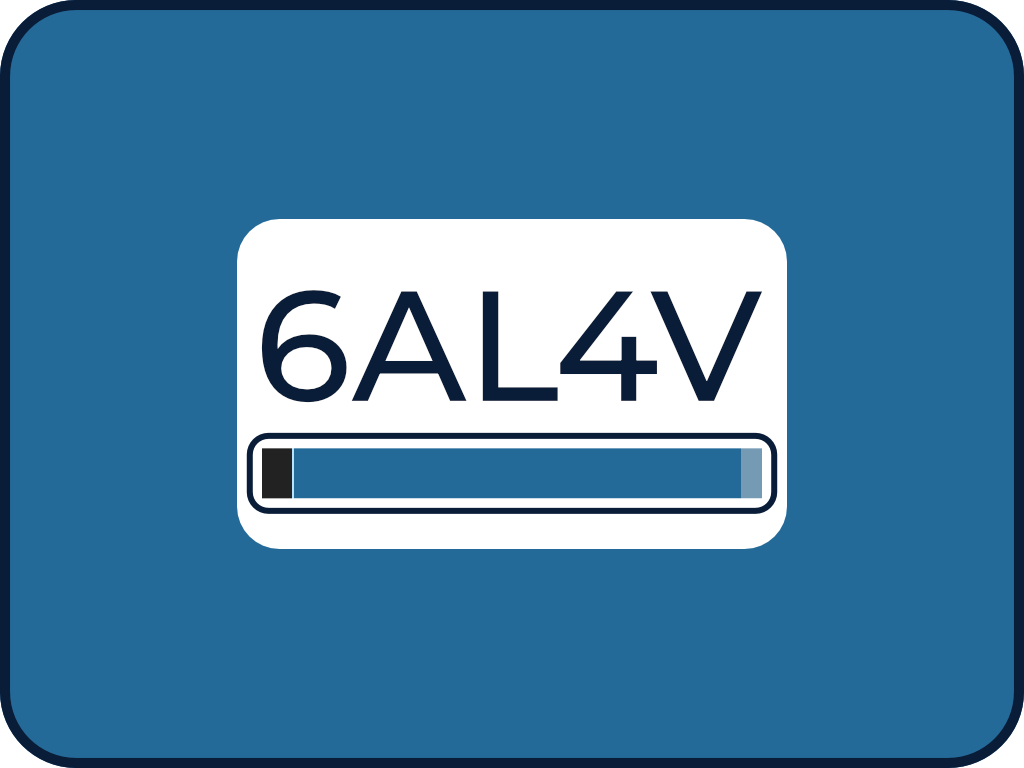
Titanium Grade 2 is a commercially pure titanium alloy valued for its exceptional balance of strength, corrosion resistance, and formability, making it the most widely used of the unalloyed grades. With moderate tensile strength, excellent ductility, and outstanding resistance to oxidizing and mildly reducing environments, it performs reliably in aggressive media such as seawater, chlorides, and various chemical solutions. This versatility makes it a preferred material in numerous critical applications including heat exchangers, pressure vessels, piping systems, and marine equipment, where durability and long service life are essential. In the aerospace sector, Titanium Grade 2 is utilized for lightweight structural components, while in the medical industry its biocompatibility supports use in implants, surgical tools, and other devices. The chemical processing industry relies heavily on this grade for equipment handling corrosive fluids, and it is also deployed in oil and gas systems, power generation plants, and desalination projects. Its ease of fabrication, machinability, and weldability further expand its suitability across industries where performance under challenging conditions is vital. Fasteners manufactured from Titanium Grade 2, such as bolts, screws, nuts, washers, threaded rods, and studs, are essential in aerospace assemblies, offshore platforms, chemical plants, and medical equipment, offering lightweight, corrosion-resistant, and non-magnetic performance.

Titanium Grade 5, also known as Ti-6Al-4V, is the most widely used titanium alloy, combining high strength, low weight, and excellent corrosion resistance with good fatigue performance. Containing 6% aluminum and 4% vanadium, it offers roughly twice the strength of commercially pure titanium while maintaining excellent biocompatibility and resistance to seawater, oxidizing environments, and chemical media. Its superior strength-to-weight ratio and ability to withstand extreme temperatures make it the workhorse alloy across demanding engineering applications. In aerospace, Titanium Grade 5 is essential for airframe structures, turbine components, and engine parts where weight reduction and durability are critical. The medical industry relies on it for implants, surgical devices, and orthopedic hardware due to its strength and compatibility with the human body. It is also widely used in marine, motorsport, power generation, and chemical processing equipment where both performance and corrosion resistance are vital. In oil and gas operations, Grade 5 provides reliable performance in aggressive offshore and subsea environments. Fasteners made from Titanium Grade 5 include bolts, screws, nuts, studs, and washers, which are highly valued in aerospace assemblies, racing applications, medical equipment, and chemical plants. These fasteners deliver lightweight strength, corrosion resistance, and non-magnetic properties for critical and high-performance connections.

Titanium Grade 7 is a corrosion-resistant alloy that combines the excellent mechanical properties of commercially pure titanium with enhanced resistance to reducing and oxidizing environments due to the addition of a small amount of palladium (0.12–0.25%). This alloy retains the strength, toughness, and formability of Grade 2 while offering superior resistance to crevice corrosion, stress corrosion cracking, and pitting in highly aggressive environments, particularly in chlorides and acidic solutions. Its exceptional durability makes it a preferred choice for applications where long service life and resistance to harsh chemicals are critical. Titanium Grade 7 is commonly used in chemical processing equipment, heat exchangers, piping systems, and desalination plants, as well as marine environments exposed to seawater. It also finds application in power generation facilities and offshore oil and gas platforms where reliability under corrosive conditions is essential. Industries that heavily depend on this material include chemical processing, marine, oil and gas, desalination, and energy. Fasteners manufactured from Titanium Grade 7, such as bolts, screws, nuts, washers, studs, and threaded rods, are widely used in chemical plants, offshore platforms, marine equipment, and power stations. These fasteners provide long-lasting, lightweight, non-magnetic, and corrosion-resistant performance in critical, high-demand environments.
